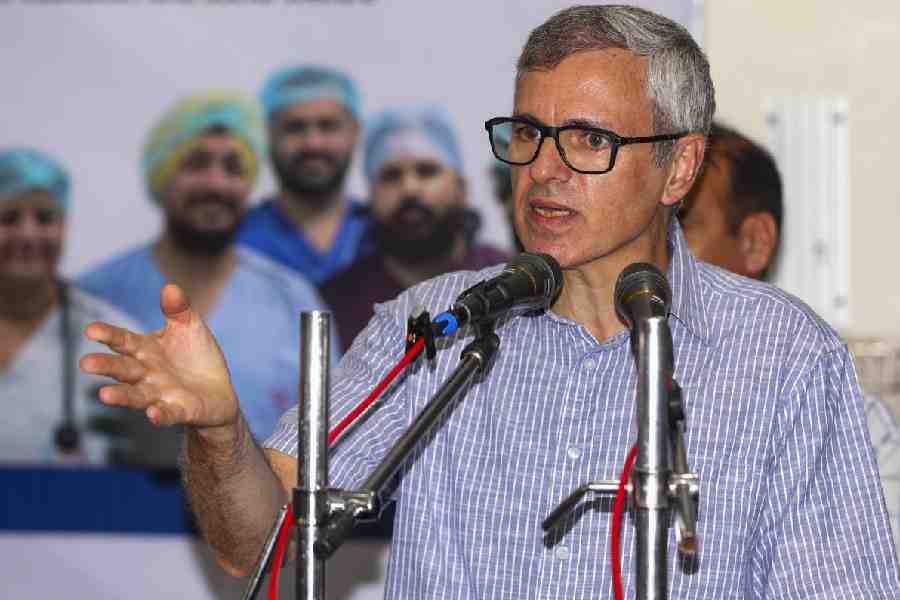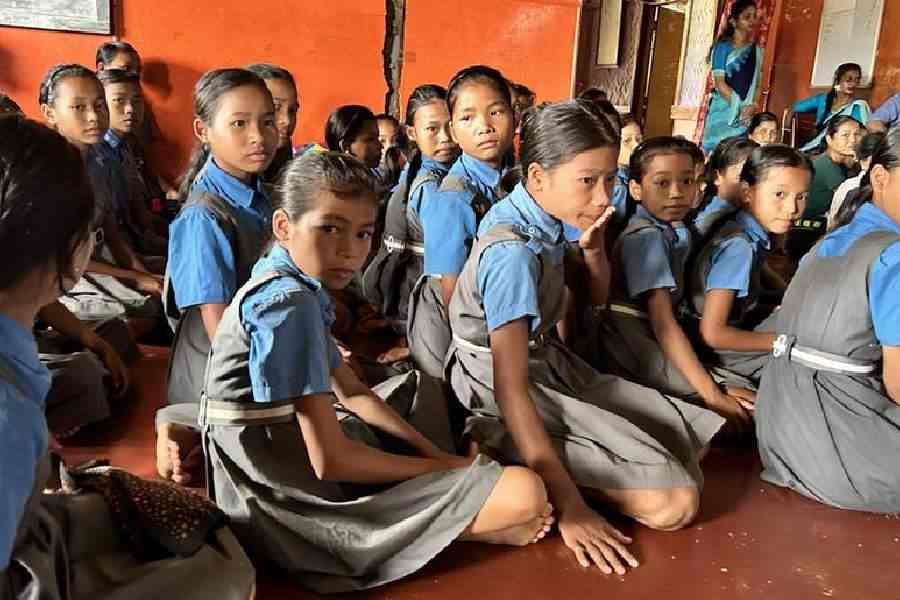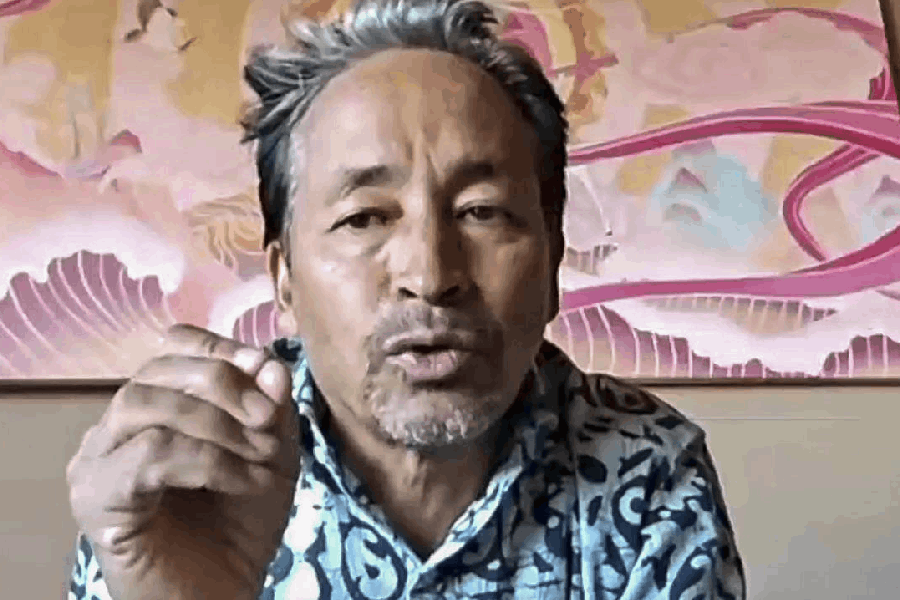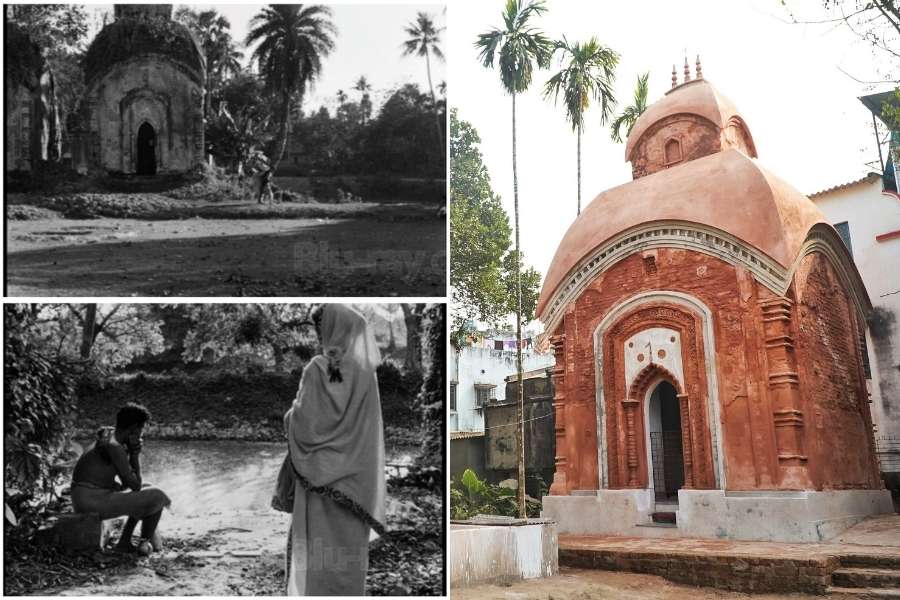.jpg)
Atal Bihari Vajpayee died in the early evening of August 16. Although a serious illness had left him incapacitated and out of public life for the past 12 years, the announcement of his death was followed by a heartfelt sense of grief as Indians in different walks of life recalled his long political career. There were tributes from those who worked with him in politics, in Parliament and in the government. There were those who remembered him as a public speaker whose appeal cut across party lines and others appreciated him as a poet. Vajpayee, it was widely agreed, was among the post-Independence greats.
At the same time, Vajpayee's death was also followed by what can best be described as a bout of political bodysnatching. Since he entered politics as an assistant to Shyama Prasad Mookerjee in 1951, deputed to the post by the leadership of the Rashtriya Swayamsevak Sangh, Vajpayee had stayed the course. Entering Parliament for the first time in 1957, he quickly became the most prominent face of the Bharatiya Jana Sangh, not least for his inspired oratory both in the Lok Sabha and outside. Deendayal Upadhyaya may have been the guiding spirit of the party that personified the spirit of Hindu nationalism in Jawaharlal Nehru's India, but Vajpayee was its public face. This became even more pronounced after Upadhyaya's death in 1968 when the responsibility of guiding the Jana Sangh through the maze of coalition politics in the Indira Gandhi era fell on Vajpayee. Subsequently, it was Vajpayee who became the Jana Sangh face in the short-lived Janata Party government of Morarji Desai, and it was again Vajpayee who was entrusted with the leadership of the newly-formed Bharatiya Janata Party in 1980.
There was a period, between 1984 and 1996, when Vajpayee's importance in the BJP diminished. It was the period of 'distinctive' politics, Ayodhya, aggressive Hindutva and Lal Krishna Advani. It was also the period that witnessed the dramatic growth of the BJP as the principal opposition to the Congress. Yet, despite being bypassed by Advani as leader of Opposition in the Lok Sabha - a decision that left him very hurt and even bitter - Vajpayee was never a forgotten relic. In the pantheon of the BJP he occupied a special place. No national executive and national council meeting of the party was complete without the concluding marg darshan by Vajpayee. It was an occasion every BJP worker awaited expectantly because Vajpayee never toed the party line uncritically. He would caution, warn and even berate the leadership with cryptic asides that could be both amusing as well as cutting. This was a show of independent thinking that no one took exception to, not least because it was understood that Vajpayee had earned the right to speak his mind. Moreover, every BJP worker and supporter knew in their heart that Vajpayee's free spiritedness was governed by unshakeable corporate loyalty to the movement that had made him what he was. The BJP was never really complete without the benign presence of Vajpayee.
That is why when it came to the crunch, when the time seemed opportune to make the final dash for political power at the Centre, Advani turned to Vajpayee. The announcement by Advani at the 1995 Bombay Maha Adhiveshan that the general election would be fought under the leadership of Vajpayee, who would also be the party's prime ministerial candidate, took many, including the RSS, by complete surprise. It was a unilateral announcement by Advani and he hadn't consulted anyone. But it was a decision that was readily accepted for two reasons. First, because Vajpayee was unquestionably the BJP's most prominent mass leader; and second, because Vajpayee was the only person in the saffron brotherhood capable of maximizing the anti-Congress vote. Vajpayee's personal appeal cut across the ideological divide.
After 1996 and particularly his dramatic resignation speech after 13 days in office which made Vajpayee the foremost national leader, there was no looking back. A grateful BJP delivered its entire organizational network to Vajpayee, and Vajpayee in turn picked up the regional allies and delivered the votes. It was a symbiotic relationship, despite the tensions that centred on strategic and tactical choices.
It was at this point, when it was clear that the BJP was well on the way to replacing the Congress as the principal party of Indian politics under the leadership of Vajpayee that there were the first noises about him being the "right man in the wrong party". These utterances became louder as a section of the RSS articulated their differences with the government over issues such as the pace of the Ayodhya resolution and economic policy. Those who had cheered the fall of the 13-day government in 1996 and encouraged the formation of a shoddy coalition to fight the 'communal forces' suddenly began detecting virtues in Vajpayee. He was pitted as the archetypal Nehruvian who was quietly fighting the sinister hardliners in the larger saffron fraternity.
There were important differences in approach between Vajpayee and many of those who saw the BJP's access to political power in 1998 as a revolution. The 'radicals', if we can call them that, believed that it was important to begin the project of demolition of the Congress-dominated Establishment. Vajpayee had other views. As leader of a coalition with a modest working majority, he felt that such a show of political audacity was premature. Instead, he preferred a more cautious approach of gradually shifting the centre of gravity away from the Congress consensus. In a bold move, he changed India's policy on nuclear weapons, a saffron commitment that dated back to the early 1970s. He built on the economic reforms of P.V. Narasimha Rao and Manmohan Singh and reduced the importance of the State in economic life. That, too, was an old Jana Sangh-BJP commitment. And in the realms of foreign policy, he firmly established India's strategic autonomy. He even tried to effect a permanent settlement with Pakistan and his speech at the Minar-e-Pakistan, acknowledging the reality of Partition, was a piece of ideological innovation in the context of the Jana Sangh's history of irredentism.
As prime minister, Vajpayee made Hindu nationalism mainstream. Most important, he helped establish a critical difference between Indian nationalism and the Nehruvian consensus. This was a stupendous ideological achievement and he laid the foundations on which Narendra Modi - fortunate to be blessed with a BJP majority on its own - was able to build. But Modi has faced formidable opposition from the old Establishment that will not give up its power and influence so easily. Vajpayee wasn't in a position to absorb such shocks and his path to change was consequently more guarded and laced with oodles of charm. Modi could afford to discard the old Establishment wholesale, Vajpayee had to accommodate selectively.
In terms of personal style, Vajpayee was also more relaxed. He never conveyed the impression that he was in any hurry to change. Perhaps this was a Brahmanical approach that went down well with an entitled elite. But there were significant advances. I would hazard the guess that had Vajpayee returned as prime minister in 2004, he would have had the moral authority to push through a negotiated settlement in Ayodhya, and one that would have facilitated the building of a temple at the disputed site. I also believe that he would have quietly facilitated the entry of a large section of the Hurriyat Conference into the political mainstream in Jammu and Kashmir.
Vajpayee never abandoned the beliefs that brought him into politics. He merely tempered them with political pragmatism. He didn't change; he made India change.

.jpg)









